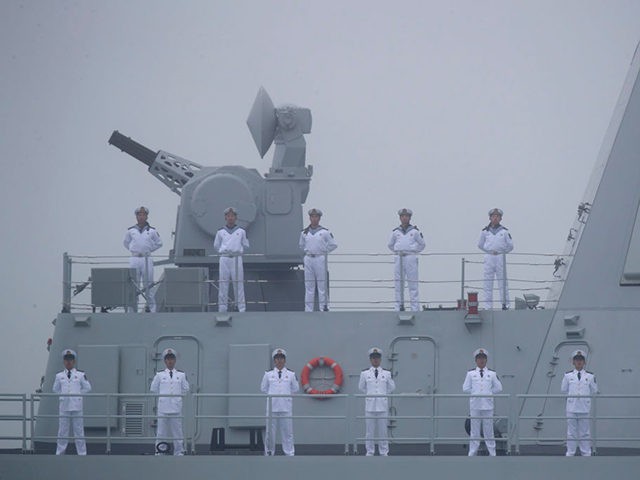China’s ambassador to Hungary, Duan Jielong, was elected to a seat on the International Tribunal for the Law of the Sea on Monday.
The United States strongly objected to Duan’s nomination, arguing that the People’s Republic of China (PRC) is the world’s leading maritime criminal.
As U.S. Assistant Secretary of State for East Asia David Stilwell put it last month, “Electing a PRC official to this body is like hiring an arsonist to help run the Fire Department.”
“We urge all countries involved in the upcoming International Tribunal election to carefully assess the credentials of the PRC candidate and consider whether a PRC judge on the Tribunal will help or hinder international maritime law. Given Beijing’s record, the answer should be clear,” Stilwell warned.
After quoting Stilwell’s remarks, CNBC noted China would be an odd choice to sit on the tribunal since the Chinese government is infamous for completely ignoring landmark arbitration under United Nations Convention on the Law of the Sea (UNCLOS) principles that rejected China’s claim to control nearly the entire South China Sea.
China’s claims arguably violate one of the core principles of UNCLOS: the sovereign right of coastal nations to conduct research, economic activity, and resource development within 200 nautical miles of their shores. China’s notorious “Nine-Dash Line,” defining 90 percent of the South China Sea as Chinese territory, extends far more than 200 miles from the Chinese mainland.
The Chinese government responded by noting that the United States does not have a vote in the tribunal election because it never ratified the UNCLOS convention, and noted that Chinese judges have held seats on the tribunal three times since its first elections in 1996. One Chinese judge is on the tribunal right now, but his term ends in September.
Critics of China’s nomination for the latest election held that the current situation is different because of Chinese aggression in the South China Sea. Writing at Lawfare two weeks before the UNCLOS election, U.S. Navy attorney and military scholar Jonathan G. Odom criticized the body for creating what amounted to a permanent “Chinese seat” on the tribunal, and warned the U.N. body would be missing a vital opportunity to reject Beijing’s aggression by voting for another Chinese judge to hold the seat.
“After diving into the history of ITLOS’s regional allocation of seats and China’s uncontested nominees, I argue that the net result for Beijing of this de facto ‘China seat’ on ITLOS is a potential sense of entitlement and impunity for taking actions contrary to UNCLOS and the rule of law,” Odom wrote, early in an extensively researched and detailed argument that could be boiled down to “rewarding China for its adventurism and ratifying its absurd maritime claims is a very bad idea.”
The election was held on Monday and Duan won his seat, a development hailed by China’s state-run Global Times as international recognition of China’s maritime claims – precisely the geopolitical spin the United States warned about.
“China’s voice is gaining more recognition and support, which proves that the international community is recognizing China’s important role given its past efforts. As the world’s major powers have vast differences regarding perception of maritime rights, China’s gradual prominence will help bring consensus in future disputes,” trumpeted Li Haidong, a professor at China’s Foreign Affairs University.
Another Chinese academic, Shen Yi of Fudan University in Shanghai, said Duan’s election showed “the international influence of U.S. hegemony is steadily declining.”

COMMENTS
Please let us know if you're having issues with commenting.